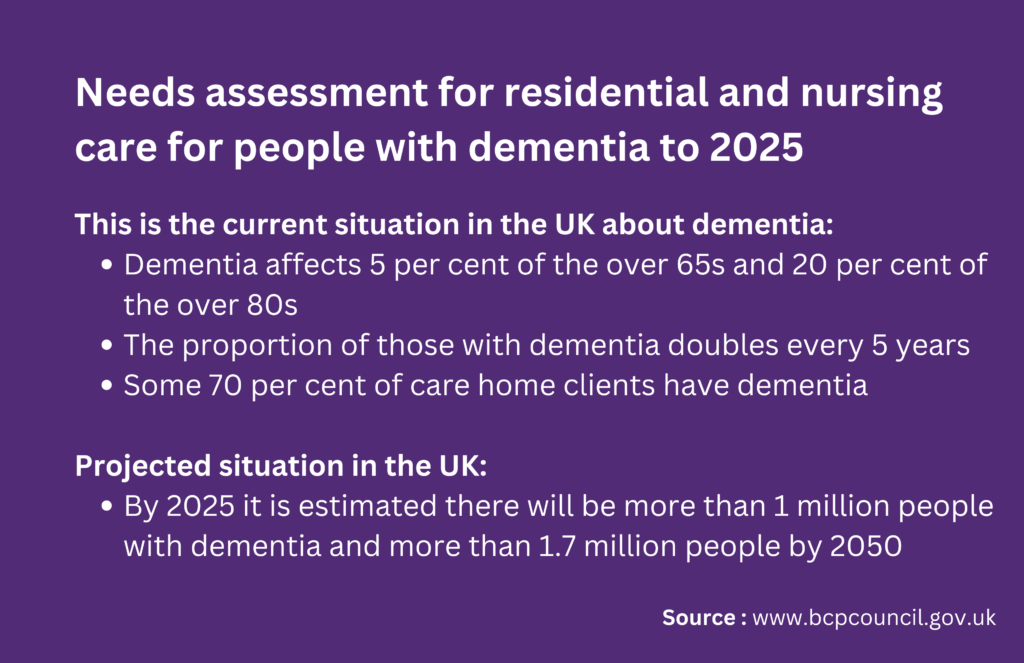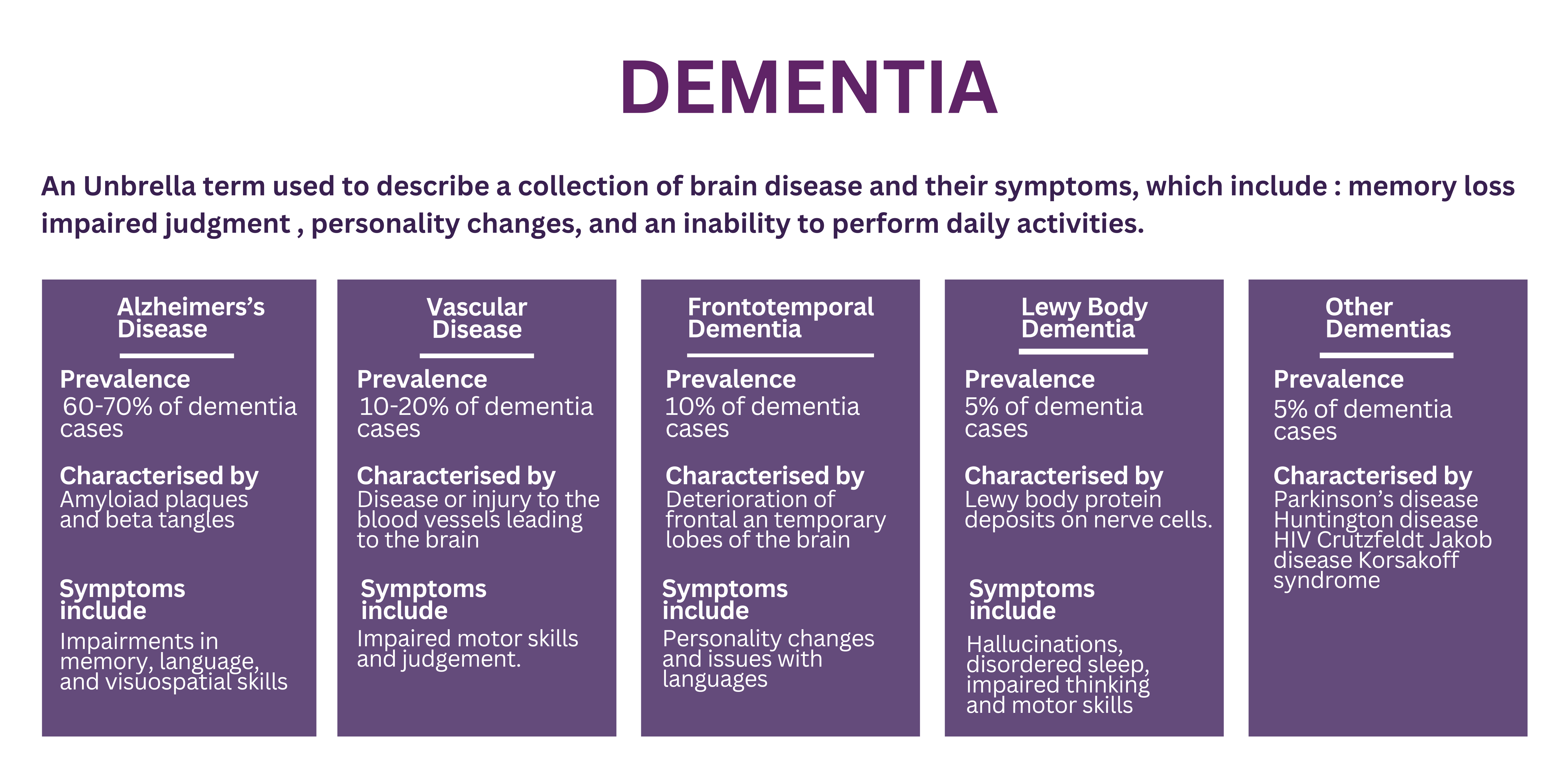Family Run Agency
CQC Regulated
Trusted Care Provider

Dementia is a progressive brain disorder that affects millions of individuals worldwide, with an estimated 50 million people living with dementia globally. In the United Kingdom alone, the number of individuals living with dementia is projected to reach over one million by 2023-2024. This staggering statistic highlights the pressing need for dementia care and support. As dementia significantly impacts personal life, affecting cognition, memory, and behavior, the role of caregivers becomes crucial.
In the United Kingdom, the number of individuals living with dementia exceeds 944,000, with a prevalence rate of 1 in 11 among people aged 65 and above. This increase is primarily attributed to the rising life expectancy of the population. Projections indicate that by 2030, the UK will have over 1 million dementia cases.
Alzheimer’s disease is most commonly found in individuals over 65 years old. The risk of Alzheimer’s and other types of dementia escalates with age, affecting roughly 1 in 14 individuals over the age of 65 and 1 in every 6 individuals over the age of 80. Nevertheless, approximately 1 in 20 people diagnosed with Alzheimer’s are under the age of 65, known as early- or young-onset Alzheimer’s disease.

Providing compassionate care at home is vital to ensure the well-being and quality of life for those affected by dementia. In this blog, we will delve into the types of dementia, its effects on personal life, and explore why caregivers are indispensable in offering support and comfort within the home setting. Based on the available data, the percentage of people with dementia in Bournemouth, Christchurch, and Poole (BCP) is approximately 5% among individuals aged 65 and older. This indicates a significant impact of dementia within the region, with a considerable number of individuals affected by the condition.
Dementia does not discriminate; it can affect anyone, regardless of age, gender, or background. However, the likelihood of developing dementia increases with age. As we grow older, the risk factors accumulate, making it more prevalent in the elderly population. While not a normal part of aging, dementia becomes more common in individuals over the age of 65.The symptoms of dementia can vary depending on the type and severity of the condition.
Some common symptoms include memory loss, difficulty in finding words, confusion, disorientation, and changes in mood or behavior. Individuals with dementia may also experience difficulty with problem-solving, following instructions, or completing tasks they were once adept at.It is important to note that dementia is a progressive condition, meaning that symptoms worsen over time. As the disease advances, individuals may struggle with maintaining personal hygiene, recognising loved ones, or even performing basic activities of daily living. However, it is crucial to remember that each person’s experience with dementia is unique, and symptoms can manifest in different ways for different individuals. Regular medical check-ups and open communication with healthcare professionals can help identify any concerns and ensure appropriate care and support for those affected by dementia.
The ageing demographic boom is driving the surge in dementia cases. With 11.4 million UK citizens aged over 65, this number is set to skyrocket by 40% in the next 17 years, crossing 16 million. By 2040, a significant 24.2% of the UK populace will be in the 65+ age bracket. 1 in 14 individuals over 65 grapple with dementia, elevating to 1 in 6 for the 80+ cohort. This heightened susceptibility may stem from age-related culprits like midlife hypertension, a spike in certain illnesses, and alterations in nerve cells, DNA, and cell composition. The body’s natural defense mechanisms weaken, further compounded by immune system modifications.

Absolute Care is the best choice for elderly care in Bournemouth, Poole, and Ferndown. Their team of compassionate and skilled carers creates personalised care plans to meet individual needs. They prioritise affordability and offer comprehensive support. With their holistic and exceptional approach to caregiving, Absolute Care provides peace of mind for both individuals and families.
ABSOLUTE CARE
Grove house, Ground floor,
Milburn Rd, Westbourne,
Bournemouth, BH4 9HJ
Email : care@newtoncare.com
Tel : 01202 757515
Care in your home provided across Bournemouth and Poole including Sandbanks, Canford Cliffs, Lilliput, Westbourne, Parkstone, Branksome, Talbot Woods and surrounding areas.

All rights reserved.